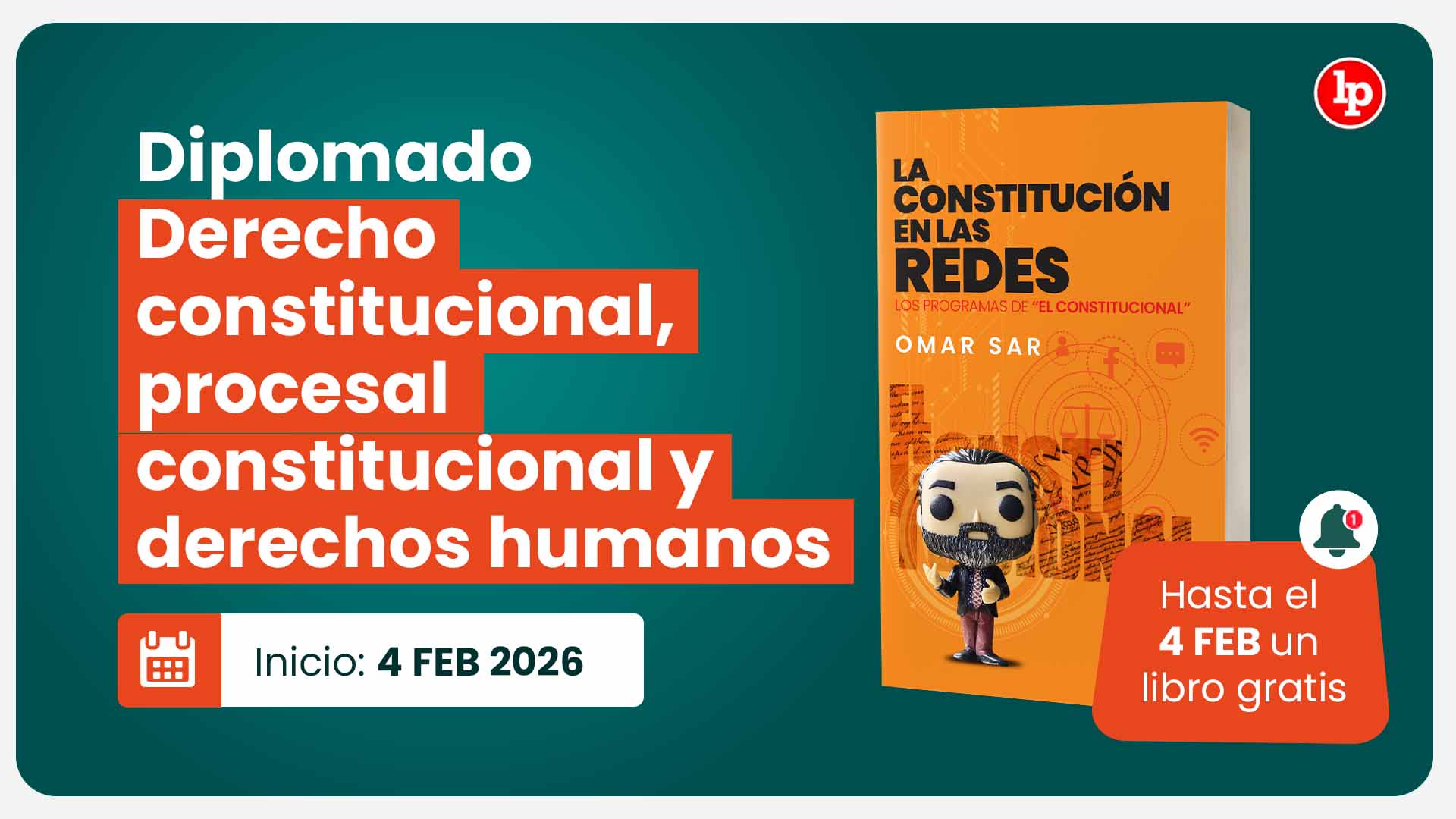Fundamentos destacados: 44. El Sr. Hadjianastassiou negó que la interferencia fuera necesaria. Argumentó que un estudio técnico rutinario basado íntegramente en su propia documentación no podía considerarse perjudicial para la seguridad nacional. En su respuesta a la pregunta 1 (b) (véanse los párrafos 11 y 12 supra), el Tribunal de Apelación de los Consejos de Guerra reconoció la inexistencia de relación alguna entre el estudio realizado para la Fuerza Aérea y el realizado para ELFON. En su opinión, debería haber existido una normativa que prohibiera a los oficiales griegos en activo trabajar para empresas privadas o que les permitiera hacerlo, siempre que no divulgaran secretos militares; el Tribunal de Apelación de los Consejos de Guerra no había identificado ni un solo secreto de ese tipo divulgado por él.
45. En este caso, el proyecto de fabricación de un misil guiado, llevado a cabo por la Fuerza Aérea, se clasificó como «secreto militar». Sin embargo, la condena del demandante en el tribunal de apelación se basó en la divulgación de «información general» que los intereses militares exigían mantener en secreto; los peritos designados por el tribunal de apelación habían concluido, antes de su decisión, que, si bien ambos estudios habían empleado métodos diferentes, no obstante, «se había producido inevitablemente cierta transferencia de conocimientos técnicos» (véase el párrafo 9 supra). Al igual que el Gobierno, el Tribunal considera que la revelación del interés del Estado en un arma determinada y de los conocimientos técnicos correspondientes, que pueden dar alguna indicación del estado de progreso en su fabricación, son capaces de causar un daño considerable a la seguridad nacional.
46. También es necesario tener en cuenta las condiciones especiales inherentes a la vida militar y los deberes y responsabilidades específicos que incumben a los miembros de las fuerzas armadas (véase la sentencia Engel y otros, citada anteriormente, pág. 41, párr. 100). El demandante, como oficial de la K.E.T.A. a cargo de un programa de misiles experimentales, estaba sujeto a una obligación de discreción en relación con todo lo relativo al desempeño de sus funciones.
47. A la luz de estas consideraciones, no se puede afirmar que los tribunales militares griegos hayan excedido el margen de apreciación que corresponde a las autoridades nacionales en materia de seguridad nacional. Las pruebas tampoco revelan la falta de una relación razonable de proporcionalidad entre los medios empleados y el fin legítimo perseguido. En conclusión, no se ha establecido ninguna violación del artículo 10.
[Traducción LP]
44. Mr Hadjianastassiou denied that the interference was necessary. He argued that a routine technical study based entirely on his own documentation could not be regarded as damaging to national security. By its reply to question 1 (b) (see paragraphs 11 and 12 above), the Courts- Martial Appeal Court had acknowledged the lack of any relationship between the study effected for the air force and that for ELFON. In his view, there should have been regulations prohibiting serving Greek officers from working for private undertakings or allowing them to do so provided that they did not divulge military secrets; the Courts-Martial Appeal Court had not identified a single such secret divulged by him.
45. n this instance the project for the manufacture of a guided missile undertaken by the air force was classified as a «military secret». The applicant’s conviction in the appeal court was, however, based on the disclosure of «general information» which military interests required to be kept secret; the experts appointed by the appeal court had concluded prior to its decision that, although the two studies had employed different methods, none the less «some transfer of technical knowledge [had] inevitably occurred» (see paragraph 9 above).
Like the Government, the Court takes the view that the disclosure of the State’s interest in a given weapon and that of the corresponding technical knowledge, which may give some indication of the state of progress in its manufacture, are capable of causing considerable damage to national security.
46. It is also necessary to take into account the special conditions attaching to military life and the specific «duties» and «responsibilities» incumbent on the members of the armed forces (see the Engel and Others judgment, cited above, p. 41, para. 100). The applicant, as the officer at the K.E.T.A. in charge of an experimental missile programme, was bound by an obligation of discretion in relation to anything concerning the performance of his duties.
47. In the light of these considerations, the Greek military courts cannot be said to have overstepped the limits of the margin of appreciation which is to be left to the domestic authorities in matters of national security. Nor does the evidence disclose the lack of a reasonable relationship of proportionality between the means employed and the legitimate aim pursued. In conclusion, no violation of Article 10 (art. 10) has been established.
[Idioma original]
COURT (CHAMBER)
CASE OF HADJIANASTASSIOU v. GREECE
(Application no. 12945/87)
In the case of Hadjianastassiou v. Greece,
The European Court of Human Rights, sitting, in accordance with Article 43 (art. 43) of the Convention for the Protection of Human Rights and Fundamental Freedoms («the Convention») and the relevant provisions of the Rules of Court, as a Chamber composed of the following judges:
Mr R. Ryssdal, President,
Mr Thór Vilhjálmsson,
Mr J. De Meyer,
Mr N. Valticos,
Mr S.K. Martens,
Mrs E. Palm,
Mr I. Foighel,
Mr R. Pekkanen,
Sir John Freeland,
and also of Mr M.-A. Eissen, Registrar, and Mr H. Petzold, Deputy Registrar, Having deliberated in private on 26 June and 23 November 1992, Delivers the following judgment, which was adopted on the last-mentioned date:
PROCEDURE
1. The case was referred to the Court by the European Commission of Human Rights («the Commission») on 12 July 1991, within the three-month period laid down by Article 32 para. 1 and Article 47 (art. 32-1, art. 47) of the Convention. It originated in an application (no. 12945/87) against the Hellenic Republic lodged with the Commission under Article 25 (art. 25) by a Greek national, Mr Constantinos Hadjianastassiou, on 17 December 1986.
The Commission’s request referred to Articles 44 and 48 (art. 44, art. 48) and to the declaration whereby Greece recognised the compulsory jurisdiction of the Court (Article 46) (art. 46). The object of the request was to obtain a decision as to whether the facts of the case disclosed a breach by the respondent State of its obligations under Articles 6 and 10 (art. 6, art. 10) of the Convention.
2. In response to the enquiry made in accordance with Rule 33 para. 3 (d) of the Rules of Court, the applicant stated that he wished to take part in the proceedings and designated the lawyer who would represent him (Rule 30).
[Continúa…]

![Que los jueces recurran a criterios utilizados por ellos mismos en otros procesos seguidos contra el mismo procesado no constituye, por sí solo, un indicio grave de parcialidad, ya que refleja la aplicación del principio de seguridad jurídica mediante el uso del autoprecedente [Recusación 17-2025, Lima, f. j. 4.9]](https://img.lpderecho.pe/wp-content/uploads/2025/07/JUEZ-DOCUMENTO-ESCRITORIO-LPDERECHO-218x150.jpg)
![Violación sexual en estado de inconsciencia o imposibilidad de resistir: el examen toxicológico no puede ser el único medio de prueba destinado a acreditar el grado de embriaguez que vició la voluntad de la víctima de acceder al acto sexual de forma libre, pues ello limitaría el derecho de la libertad probatoria; por lo tanto, dicha situación podría inferirse del recaudo documental y testimonial actuado en juicio oral [Casación 1066-2022, Selva Central]](https://img.lpderecho.pe/wp-content/uploads/2025/10/MAZO-JUEZ-SENTENCIA-PENAL-LPDERECHO-218x150.jpg)

![Rechazan liberar a su hábitat natural al Zorro Run Run o su reinserción a un «área de manejo de fauna silvestre en libertad» hasta nueva evaluación [Exp. 04921-2021-0]](https://img.lpderecho.pe/wp-content/uploads/2024/07/Justicia-peruana-reconoce-por-primera-vez-derechos-de-un-animal-sentencia-se-dictoa-favor-del-reconocido-zorro-RUN-RUN-LPDERECHO-218x150.jpg)
![EsSalud y médico deberán indemnizar por daño moral (S/550 000) y por daño psíquico (S/150 000), generados a una mujer tras el fallecimiento de su bebé no nato a causa de no practicarle una cesárea de emergencia pese a embarazo de alto riesgo; así, la magnitud de esta muerte, el intento de culpar al bebé y a la madre, y los años de medicación por depresión, justifican ambas cifras [Exp. 02483-2019-0]](https://img.lpderecho.pe/wp-content/uploads/2023/03/embarazada-mujer-medico-chequeo-bebe-salud-LPDerecho-218x150.jpg)
![La posesión no se transmite por herencia: hijo que recibió de sus padres, vía anticipo de legítima, la posesión del bien inmueble a usucapir, no puede adicionar a su plazo posesorio el de sus padres, porque el actor durante el tiempo que vivió con sus padres (transferentes) tenía la condición de poseedor inmediato, mientras que sus padres eran poseedores mediatos [Casación 80-2023, Ayacucho]](https://img.lpderecho.pe/wp-content/uploads/2024/04/propiedad-mazo-civil-inmueble-casa-vivienda-mazo-familia-predio-llave-posecion-juez-LPDerecho-218x150.jpg)

![Ley Orgánica del Registro Nacional de Identificación y Estado Civil (Ley 26497) [actualizada 2025]](https://img.lpderecho.pe/wp-content/uploads/2025/05/Ley-organica-del-registro-nacional-de-identificacion-y-estado-civil1-LPDERECHO-218x150.jpg)











![[Balotario notarial] Gestión documental notarial: protocolo notarial, registros notariales, traslados instrumentales (testimonios, partes, boletas y copias)](https://img.lpderecho.pe/wp-content/uploads/2025/09/PROTOCOLO-REGISTRO-GESTION-LPDERECHO-218x150.jpg)
![¿Qué ocurre si una entidad no entrega la información solicitada por el portal de transparencia o no responde dentro del plazo legal? [Informe Técnico 002766-2025-Servir-GPGSC]](https://img.lpderecho.pe/wp-content/uploads/2025/03/SERVIR-LPDERECHO-218x150.jpg)


![¿Es legalmente viable que la entidad obligue a un servidor civil a laborar en horarios y días no habituales (como feriados o días no laborables) sin que dicha condición haya sido comunicada previamente? [Informe Técnico 00500-2015-Servir-GPGSC]](https://img.lpderecho.pe/wp-content/uploads/2022/12/trabajo-remoto-documento-servir-LPDerecho-218x150.png)






![Ley de Delitos Informáticos (Ley 30096) [actualizada]](https://img.lpderecho.pe/wp-content/uploads/2024/08/ley-de-delitos-informaticos-ley-30096-actualizada-LPDERECHO-218x150.jpg)
![Código Civil peruano [actualizado 2026]](https://img.lpderecho.pe/wp-content/uploads/2024/05/VENTA-OFICIAL-CODIGO-CIVIL-2024-LPDERECHO-218x150.jpg)
![Código Procesal Penal peruano [actualizado 2026]](https://img.lpderecho.pe/wp-content/uploads/2024/02/VENTA-CODIGO-PENAL-BANNER-POST-TAPA-DURA-LPDERECHO-218x150.jpg)
![Código Penal peruano [actualizado 2026]](https://img.lpderecho.pe/wp-content/uploads/2024/05/VENTA-CODIGO-PENAL-LPDERECHO-218x150.jpg)







![[VÍDEO] ¿Quieres postular a la Fiscalía? Estas son las preguntas que hacen en las entrevistas](https://img.lpderecho.pe/wp-content/uploads/2021/10/postular-fiscalia-preguntas-entrevista-LP-218x150.jpg)


![EXP. N.° 0022-2009-PI/TC LIMA GONZALO TUANAMA TUANAMA Y MÁS DE 5000 CIUDADANOS SENTENCIA DEL TRIBUNAL CONSTITUCIONAL En Lima, a los 09 días del mes de junio de 2010, el Tribunal Constitucional en sesión de Pleno Jurisdiccional, con la asistencia de los magistrados Mesía Ramírez, Beaumont Callirgos, Vergara Gotelli, Landa Arroyo, Calle Hayen, Eto Cruz y Álvarez Miranda, pronuncia la siguiente sentencia con los fundamentos de voto de los magistrados Vergara Gotelli y Landa Arroyo, que se agregan. ASUNTO Demanda de Inconstitucionalidad interpuesta por Gonzalo Tuanama Tuanama, en representación de más de 5000 ciudadanos contra el Decreto Legislativo N.° 1089. DEMANDA Y CONTESTACIÓN a) Demanda contra el Decreto Legislativo N.° 1089, que regula el Régimen Temporal Extraordinario de Formalización y Titulación de Predios Rurales Con fecha 01 de julio de 2009, se interpone demanda de inconstitucionalidad contra el Decreto Legislativo N.° 1089, que regula el Régimen Temporal Extraordinario de Formalización y Titulación de Predios Rurales, publicada en el diario oficial El Peruano el 28 de junio de 2008. Los demandantes refieren que “'sin entrar al fondo del contenido de la norma”, ésta fue promulgada sin efectuar ninguna consulta previa e informada a los pueblos indígenas, tal como lo ordena el Convenio 169 de la Organización Internacional De Trabajo (OIT), afectándose con ello los derechos fundamentales de los pueblos Indígenas, como el derecho a la consulta previa y el derecho colectivo al territorio ancestral, establecidos en los artículos 6, 15, 17 del mencionado convenio. De igual forma, expresan que no se tomaron en cuenta los artículos 19, 30 y 32 de la Declaración de las Naciones Unidas sobre los Derechos de los Pueblos Indígenas (DNUDPI) aprobado por la Asamblea General de la Organización de Naciones Unidas. Alegan que con dicha norma se afectan otros derechos establecidos en el Convenio N.° 169, como el derecho sobre las tierras de los pueblos indígenas (artículos 13 al 19), en el considerando que no se tomaron en cuenta medida que garanticen la protección de sus derechos de propiedad y posesión. Refieren que se afecta también el derecho a la libre determinación de las comunidades nativas, previsto en el artículo 17 del Convenio, que declara el respeto de sus formas tradicionales de transmisión de sus territorios. Por último, alegan que se estaría vulnerando lo previsto en el artículo 19 del Convenio en cuanto se afecta el derecho al desarrollo de políticas agrarias adecuadas para los pueblos indígenas. [Continúa...] Descargue la resolución aquí](https://img.lpderecho.pe/wp-content/uploads/2023/01/Logo-LP-con-fondo-guinda-LPDERECHO-1068x561.png)




![Código Penal peruano [actualizado 2026]](https://img.lpderecho.pe/wp-content/uploads/2024/05/VENTA-CODIGO-PENAL-LPDERECHO-100x70.jpg)
![Nombre del año 2026: Año de la Esperanza y el Fortalecimiento de la Democracia [Decreto Supremo 011-2026-PCM]](https://img.lpderecho.pe/wp-content/uploads/2022/12/palacio-gobierno-1-LPDerecho-100x70.png)
![Código Procesal Penal peruano [actualizado 2026]](https://img.lpderecho.pe/wp-content/uploads/2024/02/VENTA-CODIGO-PENAL-BANNER-POST-TAPA-DURA-LPDERECHO-100x70.jpg)


![Rechazan liberar a su hábitat natural al Zorro Run Run o su reinserción a un «área de manejo de fauna silvestre en libertad» hasta nueva evaluación [Exp. 04921-2021-0]](https://img.lpderecho.pe/wp-content/uploads/2024/07/Justicia-peruana-reconoce-por-primera-vez-derechos-de-un-animal-sentencia-se-dictoa-favor-del-reconocido-zorro-RUN-RUN-LPDERECHO-100x70.jpg)

![[Balotario notarial] Gestión documental notarial: protocolo notarial, registros notariales, traslados instrumentales (testimonios, partes, boletas y copias)](https://img.lpderecho.pe/wp-content/uploads/2025/09/PROTOCOLO-REGISTRO-GESTION-LPDERECHO-100x70.jpg)






